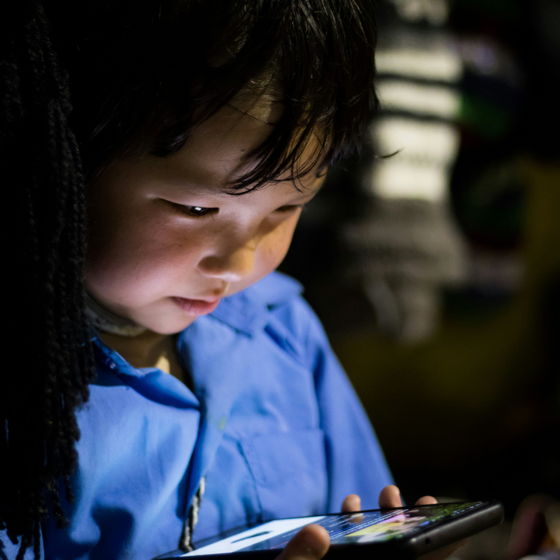Survey results show that smartphones bring benefits to children, but what should you be careful of when letting your child have one?

There are both
Results from USF study on kids' digital media use reveal benefits of smartphones and harmfulness of posting publicly to social media
https://www.stpetersburg.usf.edu/news/2025/results-from-usf-study-on-kids-digital-media-use-reveal-benefits-of-smartphones.aspx

The Life In Media Survey , led by a research team at the University of South Florida, surveyed more than 1,500 11- to 13-year-olds living in Florida to look at how children use digital media and track their happiness as adults.
Key findings from the study include:
Children who have their own smartphones score higher on almost every measure of happiness than children who don't have smartphones. Kids who have smartphones are less likely to report symptoms of depression or anxiety, more likely to spend time with friends in person, and more likely to report feeling good about themselves than children who don't have smartphones.
Efforts to limit children's digital media use have been found to be ineffective: More than 70% of 11-year-olds surveyed own their own smartphones, and many of them reported having acquired one by age 8.5.
In addition, research results have been reported in the past that children should not be restricted in the amount of time they spend using PCs or smartphones.
Research shows that children should not be forced to limit their smartphone and PC usage time - GIGAZINE

Social media posting was also associated with a range of harms: Children who frequently posted on social media were more likely to report moderate or severe depression symptoms (54% vs. 25%), moderate or severe anxiety symptoms (50% vs. 24%), and were twice as likely to report sleep problems than children who never or rarely posted on social media.
Cyberbullying, even when it's subtle (being called mean or hurtful names online), can lead to negative outcomes. Six in 10 respondents said they had experienced some form of cyberbullying in the past three months. Bullied children were more likely than non-bullied children to have felt depressed in the past year (32% vs. 11%), to have had angry tantrums (36% vs. 10%), and to report having difficulty stopping using technology (64% vs. 45%).

Justin D. Martin, lead researcher of the Life In Media Survey, and Eleanor Poynter Jamieson, professor of media ethics and press policy at the University of South Florida, said of the survey's findings, 'We went into this study hoping to find the conclusion that many researchers, teachers, and other observers had assumed: that smartphone ownership is harmful to kids. But we found that this was not the case, and in most cases, the opposite was true: smartphone ownership was beneficial.'
Based on the findings of this study, the research team made the following three recommendations for children's use of digital media:
1: Giving an 11-year-old their own smartphone is probably not a problem, and may even be beneficial.
2. Parents should discourage young children from posting on social platforms and be vigilant at any signs of cyberbullying.
3: Make sure your child doesn't sleep with their smartphone in their hand. One in four children surveyed sleeps with their smartphone in their hand or on their bed. Children who keep their smartphone in their bed sleep an average of 8.6 hours, while those who sleep with their smartphone in another room sleep an average of 9.3 hours.

'Our findings suggest that the effects of smartphone ownership are complex,' said Wendy Roth, an associate professor of psychology at the University of South Florida. 'It's not just having a smartphone, but what people do with it and the difficulty of regulating its use that could create challenges or benefits in children's lives.'
Based on the results of this study, the research team is preparing to launch a nationwide longitudinal study of approximately 8,000 early adolescents to follow them throughout their lives. This will be the first lifetime study to examine digital media use, and is expected to provide a starting point for learning more about the long-term effects of smartphones, social media, and other digital media and devices on health and wellness.
The study will collect data every six months for the next 25 years, providing ongoing insights for parents, teachers, researchers, health care providers and others into the impact of digital media use on children, as well as the effects it has on children as they enter adulthood.
'Our data provides a snapshot of how media is affecting young people at the moment,' said Steven Song, co-lead researcher on the study. 'But many of the problems and benefits associated with media use accumulate over time, so it's also important to conduct longitudinal studies to accurately assess the impact of digital media on well-being throughout an individual's life.'

The research team hopes to understand how digital media affects people throughout their lives, and hopes to be able to answer questions such as, 'How does staring at a digital screen for five hours a day affect your eyesight?' or, 'How does using social media online in childhood affect your social skills at age 30?'
Related Posts:
in Science, Posted by logu_ii







